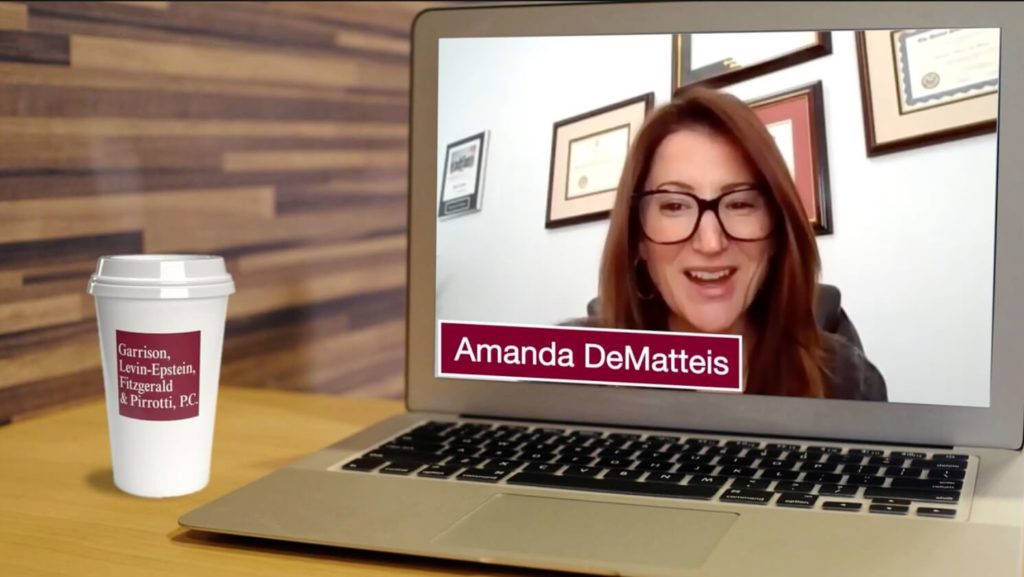Feb 2 2022
Amanda DeMatteis: Hi, Josh!
Josh Goodbaum: Hi, Amanda! What are we talking about today?
DeMatteis: So, you know how we always love to keep Connecticut employees up to date on the most recent happenings in employment law, which over the past couple of years has been so much with all of this COVID-related stuff, right? We’re just inundated with it but we have not gotten a ton of direction from, really, the courts, from anyone on how to navigate through some of these COVID-related issues. But that changed last week. We finally got an opinion from the Supreme Court, and I thought you’d be able to tell our Connecticut employees about that and how it might impact them.
Goodbaum: Yeah, so on January 13, 2022, we actually got two opinions from the U.S. Supreme Court, which has been dealing with all kinds of different COVID stuff, but largely not in the context of employment. So the court had been dealing with churches that weren’t allowed to meet; it had been dealing with the CDC eviction moratorium and said that wasn’t okay. But this time, it directly impacts employees, and it was a challenge to two Biden Administration administrative actions – one concerning OSHA and large employers, the other concerning the Center for Medicare and Medicaid Services and employees who work at federally-funded health centers.
And the Supreme Court issued a sort of mixed decision. By a 6-3 majority with respect to the OSHA mandate, the court said, “No, OSHA does not have this authority.” So, the basic idea is that OSHA cannot order large employers, employers of more than 100 people – for those employers to order their employees to be vaccinated or to test weekly, the so-called vax or test mandate. The court basically said, “We think if Congress had wanted to allow OSHA to do this, they would have been clearer.”
With respect to the other mandate, the mandate for federally-funded healthcare centers, the court by a 5-4 majority – with Chief Justice John Roberts and Justice Brett Kavanaugh in the majority for both, so they sort of switched their votes to the administration in the second case – the court said 5-4, yes, CMS is allowed to issue this rule, and federally-funded healthcare centers must require their employees to be vaccinated. This is not a vax or test rule; this is a vax rule.
So, what does this mean? What’s the takeaway from this? The takeaway is that large employers cannot be forced to institute vax or test requirements, but federally-funded healthcare facilities, which is going to include basically every hospital or large healthcare facility, can be forced to do so.
What does this not mean, just as importantly? Because sometimes people hear, “well, the court said there can’t be a mandate so my employer is not allowed to order me to get vaccinated.” That’s not what it means. What it means is that the government can’t force your employer to force you to get vaccinated. But as we’ve previously explained in video after video and blog posts and news items – we’re trying to put this information out there as clearly as we can – employers for the most part are allowed legally to require their employees to be vaccinated, to do a vax or test model, to wear personal protective equipment in the workplace with three exceptions for Connecticut employees.
One exception is those with sincerely held religious beliefs; another is for folks with demonstrated disabilities; and the third is for pregnant folks. So if you fall into one of those three categories, you might be entitled to an accommodation or an exemption under certain circumstances that can be very fact-specific. But if you don’t fall into one of those three categories, then your employer isn’t violating your rights. It might feel unfair, but it’s not illegal. So, that’s the takeaway of the Supreme Court’s COVID decisions back in the middle of January.
DeMatteis: Thank you so much, Josh. Really helpful information – ever changing as we’ve continued to see. We’ll keep you updated as things progress. Thanks for watching.
Posted by Garrison, Levin-Epstein, Fitzgerald & Pirrotti, P.C. in Commentary
Tagged Amanda DeMatteis, Joshua Goodbaum








